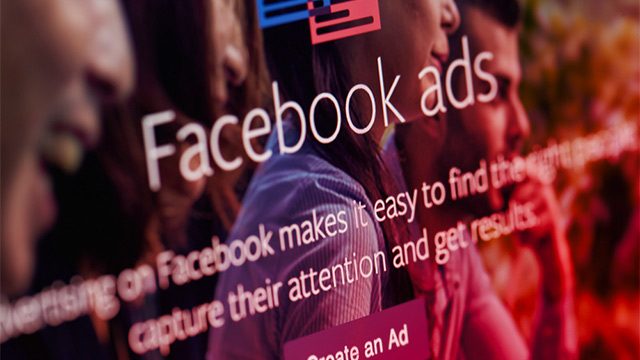SUMMARY
This is AI generated summarization, which may have errors. For context, always refer to the full article.

Facebook is taking the brunt of what is a growing boycott against social media advertising following an ongoing campaign called #StopHateForProfit, which calls on advertisers to boycott ad spending on Facebook in the wake of its earlier decisions not to stop hate speech from spreading on social media.
The campaign is supported by a number of US civil rights groups – the Anti-Defamation League, the National Association for the Advancement of Colored People, ColorOfChange, FreePress, and Sleeping Giants. (EXPLAINER: What is the Stop Hate For Profit movement?)
As of July 1, more than 430 companies and advertisers have taken an advertising pause against Facebook and Facebook-owned Instagram. In some cases, advertisers have paused social media spending in its entirety or have taken other measures akin to what is being asked by the #StopHateForProfit campaign.
What will it take, however, for all this to be effective?
That might depend on what advertisers are actually fighting for, and if their boycott will make a noticeable dent in Facebook’s extravagantly deep pockets, and in Mark Zuckerberg’s heart.
Facebook moderation: an impossible task of scale
Most advertisers and companies slamming Facebook at the moment are doing so in the hopes that the company will better address hate speech and moderate itself better, but advertisers may not know the difficulties and complications that come with policing bad actors on the internet.
Facebook has since gone out and said it will expand the hateful content it will ban in ads, in addition to adding tags to newsworthy posts that violate the platform’s rules.
More recently, it’s also said it’s banned a number of Facebook and Instagram accounts loosely affiliated with the “Boogaloo” movement, whose followers have appeared at recent protests while heavily armed.
Facebook also wants to give priority to original news reporting in order to take away the attention from spam, clickbait, and fake reports.
This is all well and good, but what happens if Facebook messes up? Technically, outside Mark Zuckerberg’s heavily criticized leniency on a certain leader, Facebook’s problem is with scaling enforcement of rules.
It has 1.73 billion daily active users, so messing up even a little can mean thousands of people will slip through the cracks of enforcement.
Is there a suggested acceptable speed in which bad content should be removed, or an acceptable number of mistakes that’ll be okay before advertisers go on a boycott again?
There aren’t really definite answers to this right now, but the closest we have is, whatever Facebook’s doing, it’s not doing it fast enough, and at the right scale to appease its clients. It would also probably help Mr. Zuckerberg’s cause to listen to the employees that protested and resigned in light of the platform not putting US President Donald Trump under the same rules as most everyone – if not for anything but decency.
The CEO needs to make a stronger statement than “we are not the arbiters of truth” because at best, it’s a tone-deaf assessment of Facebook’s place in the current information ecosystem. Whatever one’s political stance is, truth is value; truth is trust. An information distribution platform reaching about a third of the global population should value that above all.
Is the Facebook ad boycott meaningless?
CNN noted on June 26 that “The highest-spending 100 brands accounted for $4.2 billion in Facebook advertising last year, according to Pathmatics data, or about 6% of the platform’s ad revenue.” They’re also mostly planning to boycott Facebook for a month, which means the dent in Facebook’s earnings isn’t as large as we may like, even if it’s a large amount by normal human standards.
CNN’s report also pointed out Facebook CEO Mark Zuckerberg isn’t as easily pressured by business shifts, since he has “complete voting control over the company and can’t be removed by shareholders. And that could vastly complicate the campaign to hit Facebook where it hurts.” Facebook is practicing a form of self-regulation as well with their very own oversight board (still months away from starting) but the jury is still out whether the body will have an impact broad enough and fast enough. (READ: Facebook’s problems can’t be solved by more Facebook)
It should also be noted that, despite how much you want to leave it behind, there’s nothing like Facebook in terms of reach, and the many functions it serves, which unfortunately makes it the only game in town, so to speak. (READ: There’s no easy way to break Facebook’s heart)
The World vs Facebook
Convincing someone in an ivory tower to make the necessary changes, investments, and steps towards better moderation and accountability is a long process.
It appears it’s not something a bunch of companies can do for very long without hurting themselves as well.
An advertising boycott against Facebook and, by extension, its CEO Mark Zuckerberg, may not be immediately effective, but it can be a stepping stone to a larger movement towards exacting accountability.
Perhaps you can get a bunch of countries to pressure people in power from social media companies and hold them to account by putting forth a set of world rules for social media to abide by. You could say an ad boycott is the stepping stone for such a large action.
Of course, you’ll still need the world to get in on it, but at this point – and as the Stop Hate For Profit announces its plans to go global – The World versus Facebook CEO Mark Zuckerberg doesn’t seem like such a novel or entirely far-fetched idea anymore.
This July (the month covering the ad boycott of majority of the brands), we watch if Facebook’s response and proclamations will be proportionate to the demands made by the brands and its users. – Rappler.com
Add a comment
How does this make you feel?
There are no comments yet. Add your comment to start the conversation.